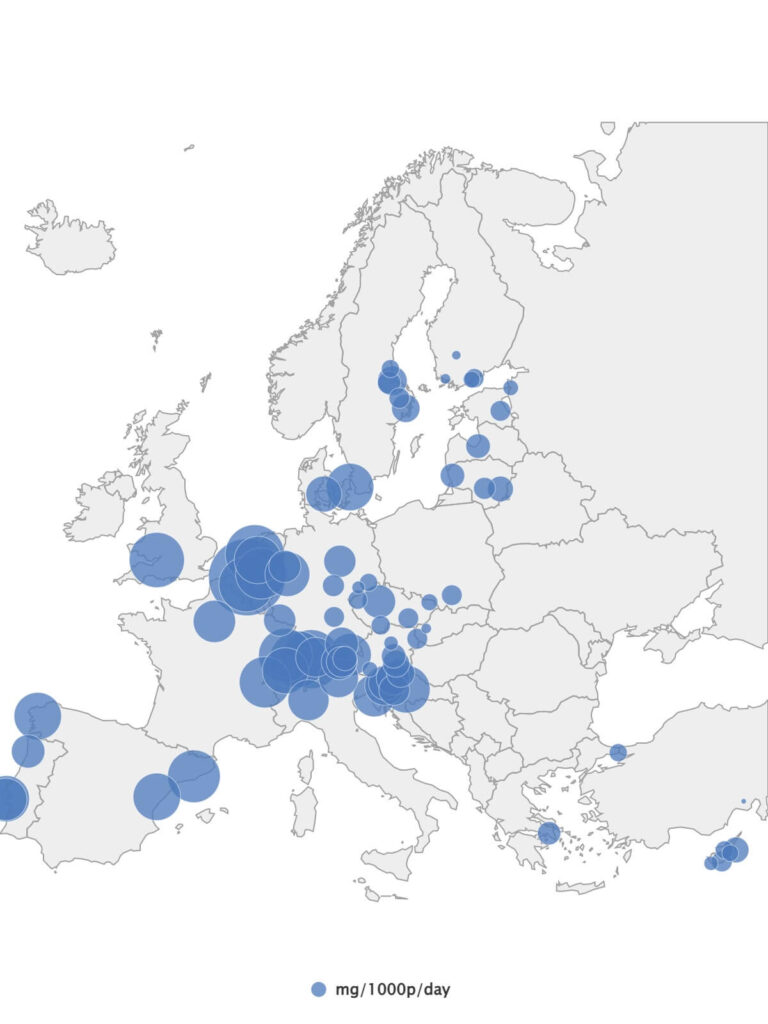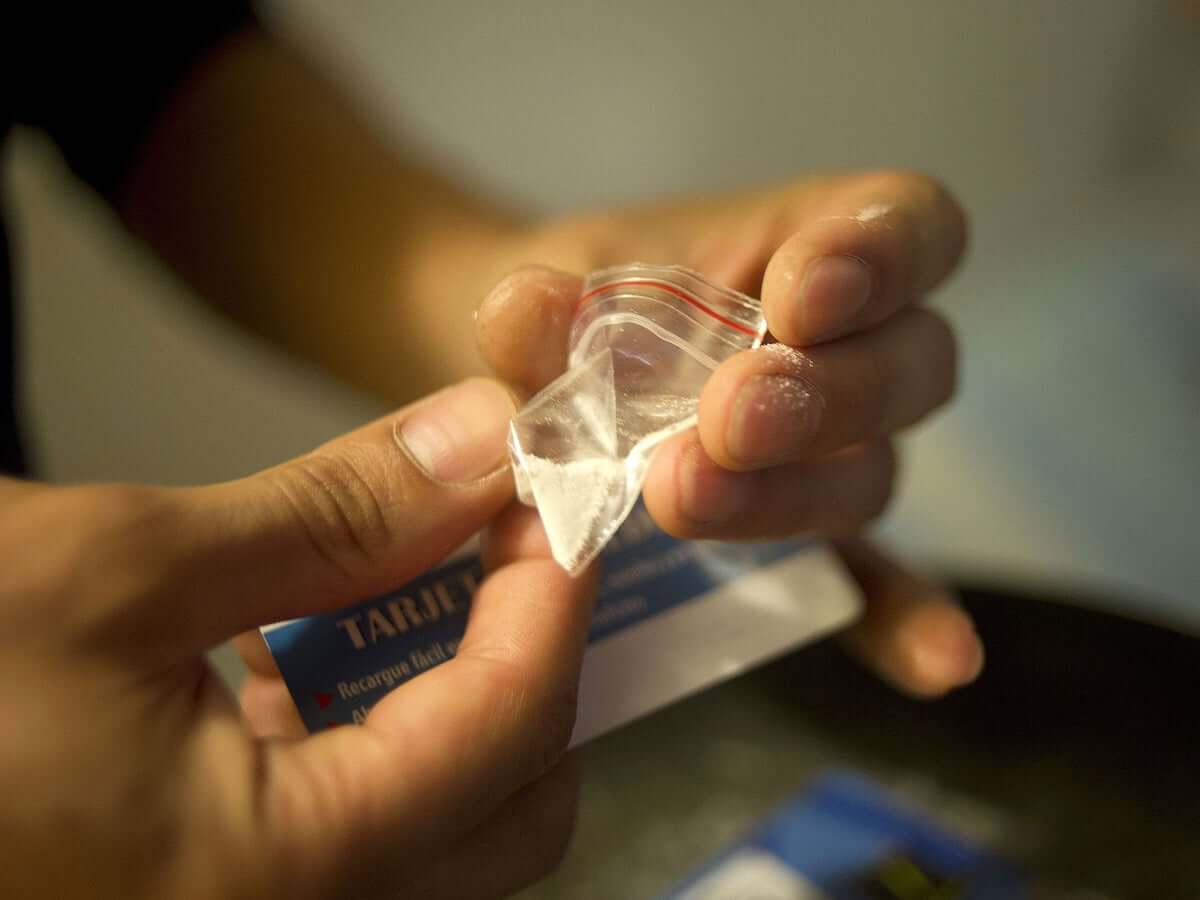A study conducted by the European Monitoring Centre for Drugs and Drug Addiction (EMCDDA) has once again ranked Amsterdam as the MDMA (ecstasy) and crack cocaine capital of Europe.
EMCDDA analysis of wastewater and drugs in European cities
As part of their study into drug residue in wastewater across Europe, the EMCDDA analyzed sewage water in 75 cities across 17 countries. Samples were collected and tested for traces of cocaine, cannabis, amphetamine, methamphetamine, and MDMA, allowing researchers to determine the consumption of different drugs in each city.
This year, the EMCDAA found that drug use varied significantly across different countries and cities, with western and southern European cities showing the highest concentration of cocaine, and northern European countries showing the highest concentration of amphetamine and MDMA.

According to the results of this year’s edition of the study, the Netherlands has some of the highest loads of cocaine, amphetamine, MDMA, and, unsurprisingly, cannabis.

Amsterdam is the MDMA and crack cocaine capital of Europe
While it wasn’t the only Dutch city involved in the study, Amsterdam has certainly emerged as one of Europe’s drug capitals. Together with Antwerp, Amsterdam’s sewage water was found to have the highest levels of crack cocaine, as well as the second-highest level of cannabis and the third-highest level of cocaine.
The Dutch capital did see a slight drop in traces of MDMA in 2021 – most likely as a result of the various restrictions imposed throughout the coronavirus pandemic and the enforced closure of nightclubs and bars – but it remains the ecstasy capital of Europe.
Both Utrecht and Eindhoven also showed high levels of MDMA in their wastewater, coming in second and fourth place respectively. Utrecht was also found to have relatively high levels of amphetamine (sixth place overall), while Eindhoven reported higher concentrations of cannabis (ninth place) and cocaine (10th place).
Source link – https://www.iamexpat.nl/expat-info/dutch-expat-news/wastewater-study-names-amsterdam-drug-capital-europ














